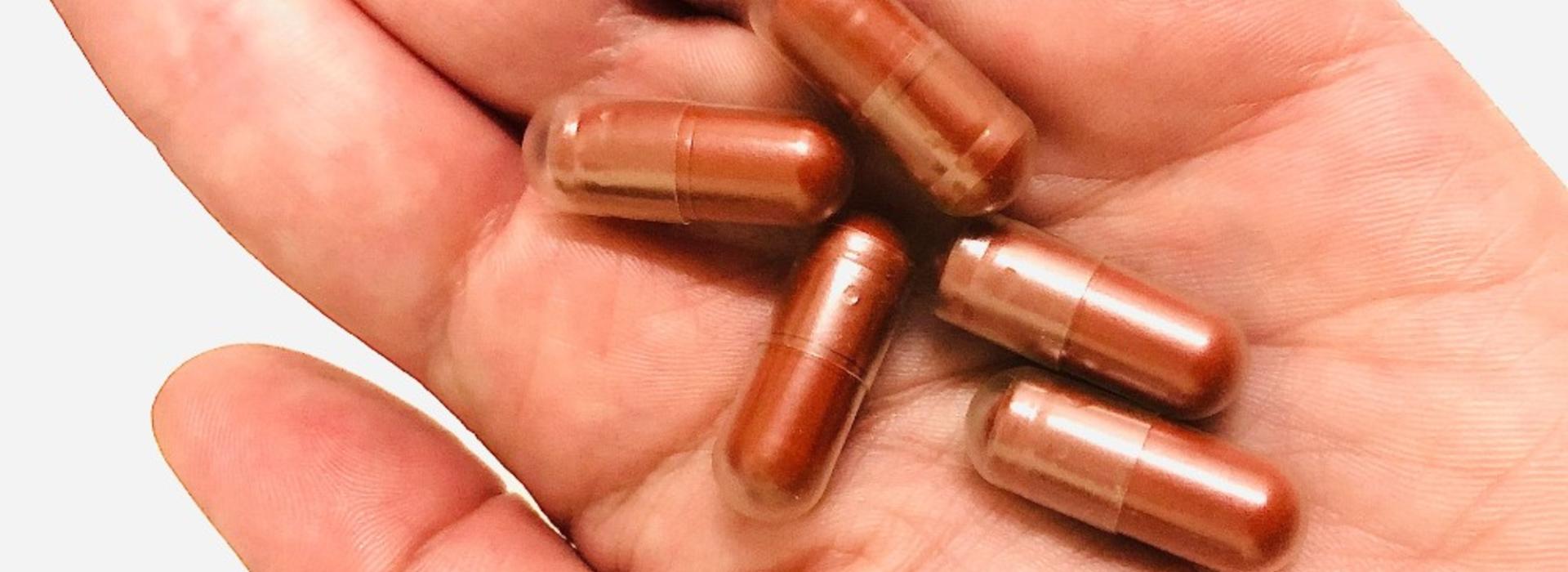
Research Brief: Capsule delivery of Fecal Microbiota Transplant has similar effectiveness to transplant by colonoscopy
MINNEAPOLIS/ST. PAUL (09/29/2022) — Recently published in Clinical Gastroenterology and Hepatology, researchers from the University of Minnesota Medical School found that Fecal Microbiota Transplant (FMT) using capsules containing freeze-dried microbes taken orally has similar safety and effectiveness to colonoscopic administration of liquid FMT for treating recurrent Clostridioides difficile infection (CDI).
Every year in the United States, approximately 500,000 people develop CDI — which is typically a complication of antibiotics. Antibiotics are also used to treat CDI, which further damage the intestinal microbiota. The U of M research team developed standardized FMT preparations — which are composed of intestinal microbes that can restore a healthy intestinal microbiota. This strategy repairs the damage caused by antibiotics and restores resistance against CDI.
“Capsule FMT can avoid complications of colonoscopy and facilitate access to this potentially life-saving therapy,” said Byron Vaughn, MD, MS, associate professor in the Medical School and gastroenterologist at M Health Fairview.
In this multicentered, national prospective study, 301 FMTs were performed in 269 patients. Two-thirds of the procedures were capsule FMT. CDI cure rates were 86% at one month and 81% at two months. There was no difference in the one-month or two-month cure rate between capsule and colonoscopic FMT.
While highly effective overall, the research team says patient selection is a key factor to optimizing FMT success. Older age, hemodialysis and post-FMT antibiotics were associated with lower cure rates. Further research is suggested to identify patients that do not have a successful FMT and understand why they don’t respond to the therapy.
This work was supported by Achieving Cures Together, a nonprofit organization dedicated to advancing microbiome-based research.
###
About the University of Minnesota Medical School
The University of Minnesota Medical School is at the forefront of learning and discovery, transforming medical care and educating the next generation of physicians. Our graduates and faculty produce high-impact biomedical research and advance the practice of medicine. We acknowledge that the U of M Medical School, both the Twin Cities campus and Duluth campus, is located on traditional, ancestral and contemporary lands of the Dakota and the Ojibwe, and scores of other Indigenous people, and we affirm our commitment to tribal communities and their sovereignty as we seek to improve and strengthen our relations with tribal nations. For more information about the U of M Medical School, please visit med.umn.edu.